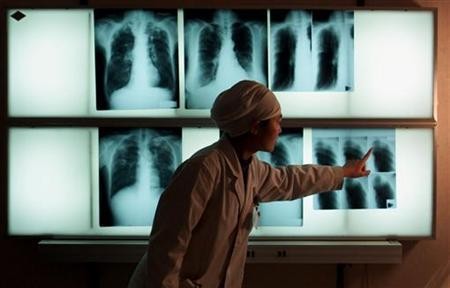Researchers have found that giving electronic reminders to tuberculosis (TB) patients in China can reduce the amount of missed medication doses by half.
Chinese and British researchers from China's National Center of Tuberculosis Control and Prevention and Britain's London School of Hygiene & Tropical Medicine conducted their research with 4,173 patients from Heilongjiang, Hunan, Jiangsu and Chongqing.
Patients participating in the trial could either receive text message reminder, an electronic medication monitor, both, or receive no reminders at all for the six-month duration of the treatment period.
Patients who received no reminders missed 29.9 percent of their doses, while those who received text messages missed 27.3 percent.
In contrast, patients with an electronic medication monitor box, which beeped if not opened at a particular time, only missed 17 percent of their doses, while those who received both text messages and an electronic monitor missed only 13.9 percent of doses.
The findings were published in the U.S. journal PLOS Medicine.
TB treatment typically lasts six months and is effective if taken properly. However, missing drug treatments increases the risk of TB relapse and TB drug resistance.
The current recommendation for TB treatment has been to treat patients under the direct supervision of a healthcare worker in order to reduce missed doses. However, this has proven difficult in some parts of China, especially in rural villages.
"Directly observed therapy is difficult to implement in China due to limited human resources, poor acceptance and other factors," said Dr. Shiwen Jiang, project investigator of the National Center for Tuberculosis Control and Prevention.
"Our study aimed to assess whether the use of the medication monitor and/or text messaging can improve adherence to TB drugs. Our results are encouraging," said Jiang.
According to the World Health Organization, China has the second largest number of TB cases in the world. Out of an estimated nine million cases around the world, 11 percent happen in China.



























